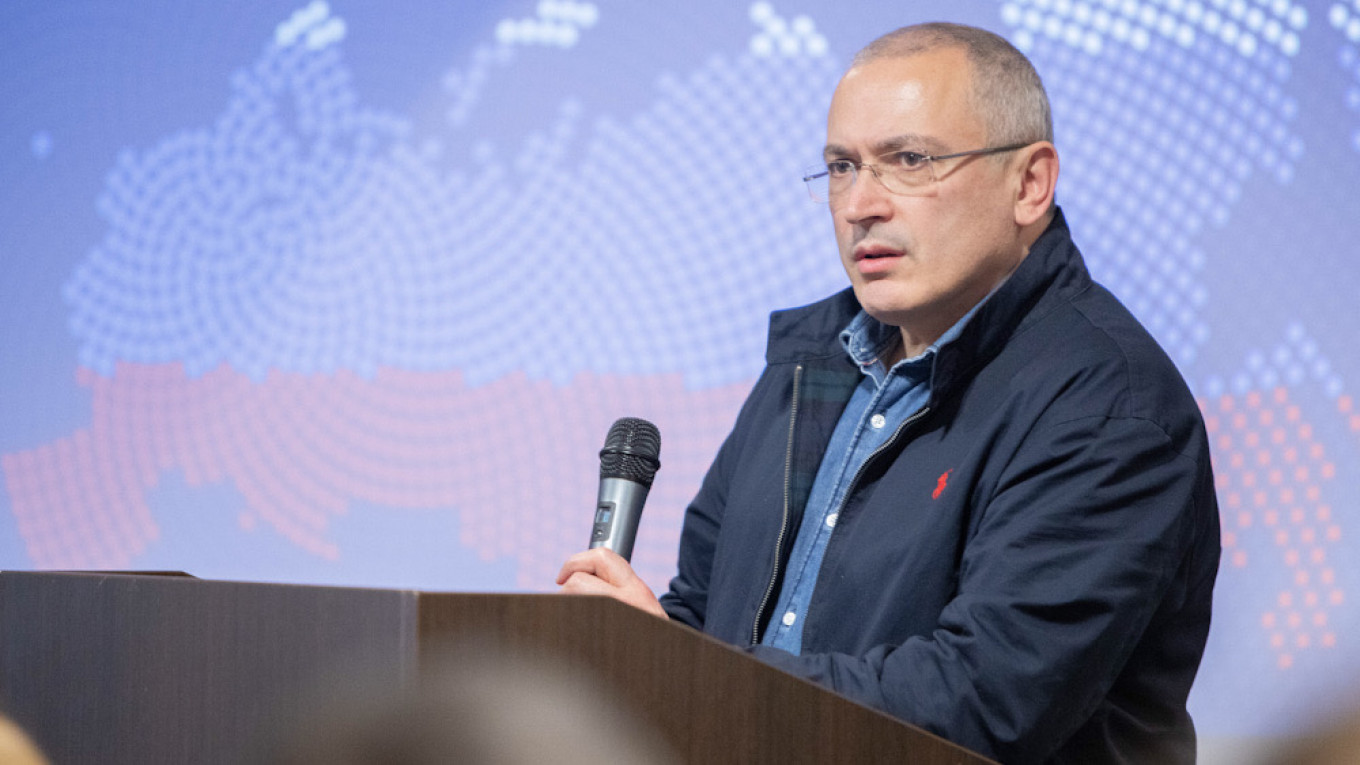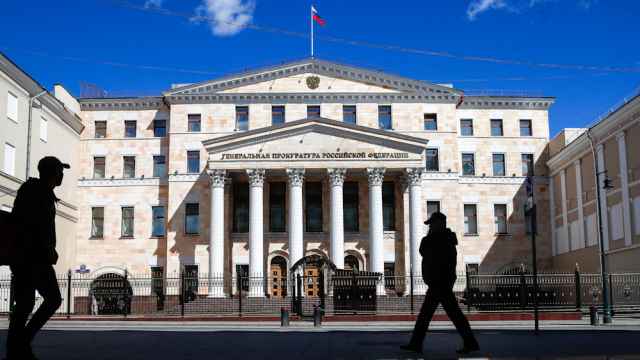Russia on Thursday designated four European civil society and educational groups associated with exiled former tycoon Mikhail Khodorkovsky as “undesirable,” a move that risks significant jail time for those affiliated with them.
The four NGOs blacklisted by Russian prosecutors are the Britain-registered Khodorkovsky Foundation and its subsidiary Oxford Russia Fund, the Future of Russia Trust philanthropic fund and the French group European Choice.
The Russian Prosecutor General’s Office accused the groups of “threatening the constitutional order and security of Russia” in a statement.
According to the U.S. Radio Free Europe/Radio Liberty news website, all four organizations are involved in educational projects and are part of Khodorkovsky’s network. The Oxford Russia Fund says it awards 2,000 undergraduate students small scholarships to study humanities at 20 Russian universities every year.
The latest designation comes one week after Russia declared New York-based Bard College, which had collaborated with the St. Petersburg State University since 1997, an “undesirable” organization.
Russian law requires the newly declared “undesirable” organizations to disband.
Members of “undesirable” foreign groups face up to four years in prison, while those accused of organizing its activities in Russia face up to six years in prison.
Another “undesirable” Khodorkovsky group, the Open Russia opposition movement, disbanded in May to avoid jail sentences for supporters ahead of this fall’s parliamentary elections. Its former executive director Andrei Pivovarov was later detained after being taken off a departing flight in Moscow and now faces up to six years in prison under the “undesirables” law.
Russian authorities have now blacklisted 39 foreign groups as “undesirables” in line with the 2015 law that rights groups see as the Kremlin’s efforts to stifle dissent.
President Vladimir Putin last week signed into law a ban on Russians from cooperating with “undesirable” groups anywhere in the world.
A Message from The Moscow Times:
Dear readers,
We are facing unprecedented challenges. Russia's Prosecutor General's Office has designated The Moscow Times as an "undesirable" organization, criminalizing our work and putting our staff at risk of prosecution. This follows our earlier unjust labeling as a "foreign agent."
These actions are direct attempts to silence independent journalism in Russia. The authorities claim our work "discredits the decisions of the Russian leadership." We see things differently: we strive to provide accurate, unbiased reporting on Russia.
We, the journalists of The Moscow Times, refuse to be silenced. But to continue our work, we need your help.
Your support, no matter how small, makes a world of difference. If you can, please support us monthly starting from just $2. It's quick to set up, and every contribution makes a significant impact.
By supporting The Moscow Times, you're defending open, independent journalism in the face of repression. Thank you for standing with us.
Remind me later.






